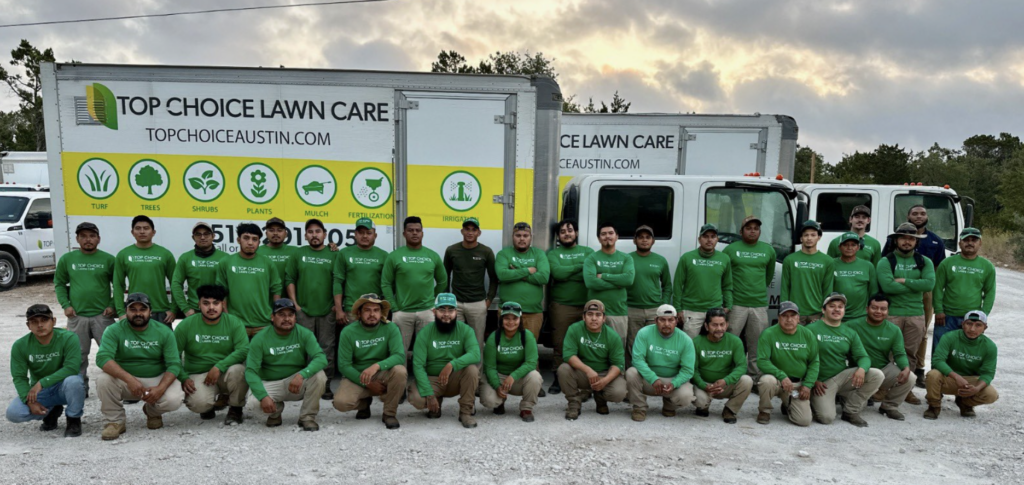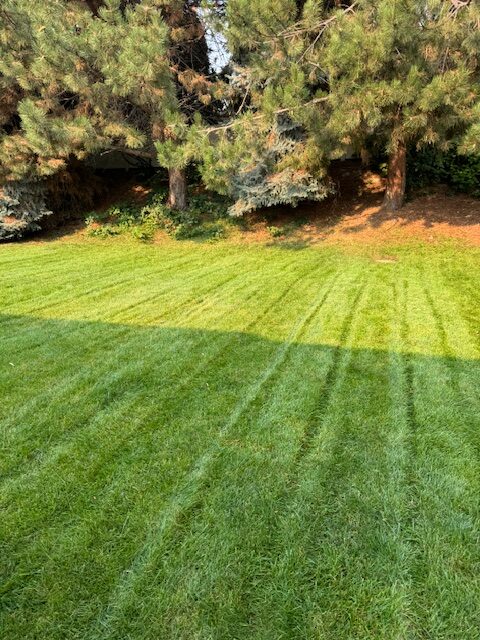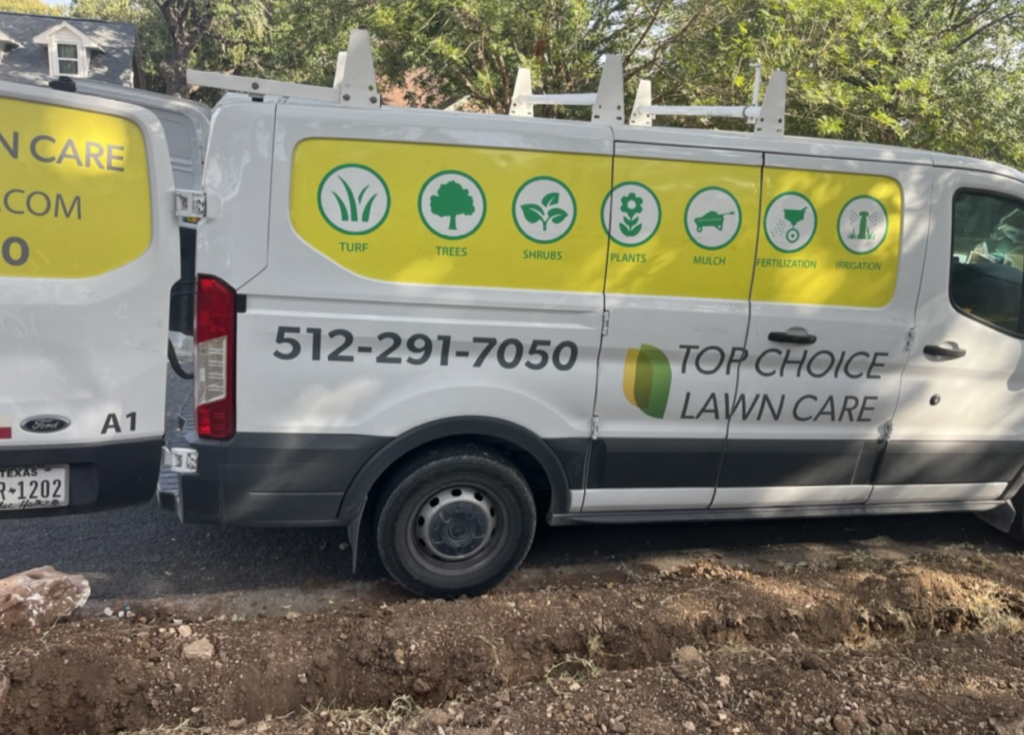This calculator will help you understand the true lifetime value (LTV) of lawn mowing customers and determine customer acquisition costs (CAC) you could anticipate with this service business.
Lawn Mowing Customer Value Calculator
Lifetime Value
Customer Value per Year
Target CAC
How this calculator works
The default settings on this calculator were built with real-world numbers provided by Nolan Gore on X who owns Top Choice Lawn Care in Austin, Texas. Nolan’s business does more than $6 million in annual revenue so he knows what he’s talking about when it comes to running a successful landscaping business.
Understanding the Inputs
- Average Mow Price ($): This is how much you charge for a typical mow. The default is $75, but enter your actual average price.
- Gross Margin (%): This is the percentage of your mowing revenue that’s left after direct costs (labor, fuel, equipment costs). The default is 50%. For example, if you charge $75 and your direct costs are $37.50.

Top Choice Lawn Care serving Austin, Texas.
- Average Number of Mows per Year: How many times you mow each customer’s lawn in a typical year. The default is 25, assuming a typical mowing season. Nolan’s company is based in Austin, Texas, so his mowing season may be longer than yours if located up north.
- Average Retention (months): How long customers typically stay with your service. The default is 36 months (3 years) based on Nolan’s numbers, but adjust based on your experience.
- Desired Customer Acquisition Cost (CAC) (%): What percentage of your customer’s lifetime net value you’re willing to spend to acquire them. The default is 25%.
I set the default at 25% based on input from Jon Matzer, who suggested using 20% – 30% customer acquisition costs for any risks or indirect costs. Basically, you want to build a safe buffer into your numbers, which is always a smart idea.
Want some real numbers?
— Nolan Gore | SMB Lawn Cowboy (@LeadershipAcad1) November 22, 2024
Life Time Value / LTV & Customer Acquisition Cost /CAC
Here are my numbers. I would love for some help understanding this...?
…what does this mean I should spend on marketing?
- Average mow $: $75/mow
- Gross Margin on Mow: 50%
- Number of mows per…
Understanding the calculations
Here’s how the calculations work in this tool:
- Yearly Value Calculations:
- Yearly Gross = Mow Price × Mows per Year
- Yearly Net = Yearly Gross × (Gross Margin ÷ 100)
- Lifetime Value Calculations:
- Lifetime Years = Retention Months ÷ 12
- Lifetime Gross = Yearly Gross × Lifetime Years
- Lifetime Net = Yearly Net × Lifetime Years
- Target Customer Acquisition Cost (CAC):
- Lifetime CAC = Lifetime Net × (Desired CAC % ÷ 100)
- Yearly CAC = Yearly Net × (Desired CAC % ÷ 100)
What's the True Potential Value?
Credit to Nolan Gore for kicking off an eye-opening conversation about the real value of lawn care customers. At first glance, the math looks straightforward with the average lifetime value of a mowing customer sitting at $2,812.50.

Mowing is just the beginning.
But when you dig in, you realize mowing could just be the foot in the door with landscaping companies. The real money? It’s in the extras like:
Routine services:
- Fertilization plans: $200–$600/year
- Weed control plans: $300–$500/year
- Seasonal cleanup: $200–$400/year
Big-ticket, one-time jobs:
- Landscape design: $1,000–$5,000
- Tree removal: $500–$2,000
- Irrigation systems: $2,000–$5,000
- Hardscaping: $5,000–$20,000
A single upsell transforms a customer’s lifetime value from “not bad” to “pretty sweet”.
The True Value of a Customer
Here’s how the math changes when you factor in upsells and repeat business using a hypothetical example:
Year 1:
- Mowing: $937.50
- Fertilization: $400
- Fall cleanup: $300
- Total: $1,637.50
Year 2:
- Mowing: $937.50
- Fertilization: $400
- Fall cleanup: $300
- Irrigation repair: $500
- Total: $2,137.50
Year 3:
- Mowing: $937.50
- Fertilization: $400
- Fall cleanup: $300
- Landscape redesign: $3,000
- Total: $4,637.50
Example Customer Value with Add-on Services: $8,412.50
Running a Lawn Care Business Ain't Easy!
Running a lawn mowing business is a proven business model and there’s nothing like turning neatly trimmed grass into cold, hard cash.
But let’s keep it real… This is not an easy business to scale. Profit margins are often 5% – 20% per job, employees are expensive and take time to train and manage, and mastering services like landscaping and irrigation takes more than a YouTube crash course.

Landscaping vehicles like this don’t come cheap. They require real investment for every new piece of equipment.
Add to that the cost of equipment that breaks down at the worst possible moment, and it’s clear this gig isn’t all sunshine and freshly cut lawns.
So, as you plug numbers into this calculator, keep in mind you’re not just building a business—you’re signing up for a juggling act of skills, expenses, and maybe a few headaches. But hey, if you’ve got the grit (and a good sense of humor), this business just might grow into something amazing.
Related tools:
Lawn, mow, trim and blow Time Calculator: Estimate the amount of time it will take to complete a service based on customer lawn size.
Lawn Mowing Revenue Calculator: Project how much money you’ll make mowing lawn based on number of customers, custom rates, and lawn sizes.